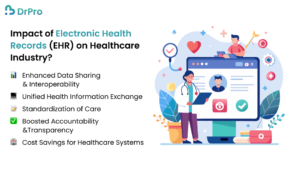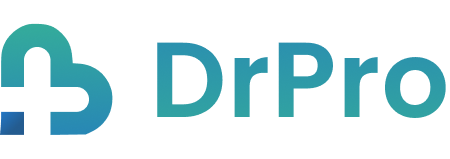Quick Summary
Electronic Patient Management Systems (EHRs) have brought major changes in the healthcare industry where patients, healthcare providers, and staff all reported improved patient care, workflow, and information control. In this article, the basic advantages of these systems have been included to discover how these systems make a positive contribution to patient satisfaction, doctors, and their role in the healthcare field.
Introduction
Modern healthcare delivery systems have rapidly transformed in the new age of digitization and information Technology and at the center of this have been Electronic Patient Management Systems commonly referred to as EHRs. These systems are not mere storage systems as they incorporate all facets of the health care sector, from the history of patients to their treatments; they present real-time access to information. From the patient and healthcare professional, this shift has been responsive to enhancing the quality of care and operations.
In the following article, five aspects that outline the advantages of EPMS shall be disclosed to focus on the ways Electronic Patient Management Systems benefit patients and other participants in the healthcare sector.
What Are EHR Systems?
EHR or electronic patient management systems are computer applications implemented to support the storage, management, and transfer of patient information. As against the conventional paper-based systems, EHRs are ‘virtual,’ that is, they are generated and maintained in real-time, with the patient as the focal unit and information immediately retrievable to qualified users.
Patient history, diagnosis, prescribed medication, plan of care, immunization dates, a list of known allergies, and the patient results. Many times, Electronic health records also help keep data moving from 1 clinic within and between hospitals hence promoting the interconnection of care between hospitals and other outpatient clinics.
Key functionalities include:
- Storing patient data
- Automated alerts and reminders
- Medication management
- Integration with laboratory and diagnostic systems
- Secure communication between providers
These core functions not only streamline healthcare operations but also provide a foundation for better patient outcomes.
Key Benefits of Electronic Patient Management Systems for Patients & Doctors
The Benefits Of Electronic Patient Management Software Systems To Patients and Doctors Meaningful use of EHR systems has amazing impacts on patients as well as healthcare providers in their various practices. Let’s explore five of the most impactful benefits in detail:

Improved Access to Patient Information
EHRs have the benefit of providing anytime anywhere information that too in the patient’s favor. To the doctors this entails that they no longer have to depend on paper charts which are often; missing, poorly written, or contain lots of missing information. The significant related advantage is that by using EHRs, key information for treatment decisions, and detailed patient data can be obtained quickly. Consistent with this is the fact that incorporating text mining increases the probability of accurate diagnosis, early intercession in the event of a complication or considering possible complications, as well as decreasing medical mistakes.
This means that the benefit in the patient’s context is the ability to acquire and store all their comprehensive health information in one place. Some of the benefits include keeping records of their medical history, treatment plans, and even drugs so that they can engage more with their healthcare givers. Patients can also get copies of their records online or by other means, which is an added advantage since patients are granted ‘ wallets’ that enable them to handle their health better.
Enhanced Coordination
With many patients having to attend to different specialists, problems can arise with healthcare providers in complex medical cases. The worst thing about lacking a centralized system is the coordination of care from different doctors, departments, facilities, and so on. They are useful in solving this problem since they allow the various caregivers to share various details about the patient.
When doctors use the same information They do not repeat tests; there is no doubt that everyone will be working on the same updated data. This coordination is especially important to patients with chronic diseases or when employing treatment that involves multiple disciplines for instance oncology or cardiology.
Better Patient Safety
The conditions and incidents that formerly could lead to unfortunate medical mistakes are missing in EHR systems. Illegible handwritten prescriptions contribute to medication mistakes Students: prescriptions can be handwritten, and they are confusing to read. Electronic documentation has features such as electronic prescriptions, which make prescriptions very clear and are dispatched directly to the pharmacist. They also can inform healthcare providers regarding possible drug interrelations or allergies depending on the patient’s history.
In addition, EHR systems provide both timely prompts for preventive care like immunizations and screenings, as well as safeguarding doctors against potentially overlooked care possibilities.
Increased Efficiency and Time Management
To healthcare providers, time is likely to be one of the most valuable commodities, which Electronic health records assist in managing. As patient records are in electronic form, doctors do not have to spend their time looking for misplaced papers or documents, writing out mountains of paperwork, or repeating the tests that have already been done. These improvements also result in giving more time to direct care to patients, and healthcare professionals.
Other benefits of using EHR systems include; billing, coding, and insurance claims which are made easier by the EHRs. This cuts down on the time taken to produce the billing documents and makes billing more efficient, thus making the overall performance of health organizations better.
Empowering Patients in Self-Management
Another less-spoken advantage of EHR systems is patient engagement hand is one of the many options that it has a major impact on. By using patient portals, people can manage their health information, check the results of their laboratory tests, and receive medical advice without being compelled to visit doctors. This access promotes an element of independence and self-ownership or self-managed health.
These portals also allow patients to book appointments, renew prescriptions, and send secure messages to their clinicians. Doing this not only makes it more convenient to a patient but also enhances patient compliance and self-monitoring hence producing a better result in the long run.
Impact of Electronic Health Records (EHR) on Healthcare Industry?

Electronic Health Record systems are among the most transformative sets of systems in the healthcare field affecting the practice and delivery of care. These are not merely systems for data storage and retrieval but have become the new face of patient handling, data exchange, and managing an organization’s operations along with a multitude of other client needs.
Data Sharing & Interoperability
Another significant effect brought by EHRs is the enhancement of information exchange between several members associated with a patient’s treatment. Since the implementation of EHR systems, interoperability; or the exchange and use of patient data from different systems and organizations is conceivable. This has resulted in better synchronization of the patient’s care and has minimized the interconnecting mish-mash which is common in health systems.
Unified Health Information Exchange
Standardization and architectures to facilitate the sharing of patient data amongst healthcare stakeholders have been designed. Hence, patients’ timing of receiving treatment is improved as the doctor gains an unrestricted view of the patient’s medical history on the records.
Standardization of Care
EHRs have eradicated variability in the care that is being offered to different patients by providing frameworks of the right treatments which must be offered to every patient based on industry best practice. These systems also help in proven interventions that can be linked with databases of medical journals and clinical practice protocols. It also serves to enhance the capacity to give patients better outcomes and diminish unwarranted differences in professional practice.
Boosted Accountability & Transparency
EHR systems also increase information accountability and reveal respective patient record viewers and authors, as well as details of performed alterations. It enhances the relationship between healthcare providers and the clients since only the right people can touch sensitive health information. It also prevents cases of fraud and increases the safety of medical records.
Improved Population Health Management
EHRs enable the capturing as well as monitoring of health outcomes of several patients at once. These and other patterns in the data generated by patients including the prevalence of chronic diseases or vaccination, among others, help healthcare providers embark on initiatives about the population in question. This is most suitable when dealing with chronic diseases such as diabetes, hypertension, and other chronic illnesses.
Cost Savings for Healthcare Systems
The cost of adopting an EHR system may be high in the short run, but the on-balance costs are much higher in the long run. Compared to paper-based records, the use of EHRs has been shown to present low costs regarding documentation, filing, and transcription. They also reduce the overall time needed for billing and insurance claim processing; they eliminate mistakes in the billing and collection system. However, in the long run, healthcare organizations can stand to make huge amounts of money by minimizing operational costs.
Conclusion
Electronic Health Record Systems (EHRs) have ideal Electronic Patient Management features that have been of great advantage to both patients and healthcare service providers. From the patient’s record and care coordination to patient safety, and operation efficiency, these systems are vital to most healthcare delivery today. Continued advancement of the nursing informatics knowledge base will remain essential as the preservation of health information technology in shaping the care delivery setting with vigorous EHR systems movement.
The collaboration between ProjectTree and DrPro ensures a comprehensive approach to managing projects and healthcare systems, optimizing both processes.
FAQs
Q1. What is the difference between an EHR and an EMR?
EMR is known as Electronic Medical Records, which is like a paperless patient record chart while EHRs are broader-Patient Centric health information that can be stored across multiple health care providers.
Q2. Are Electronic Patient Management systems secure?
Yes, Electronic Patient Management employs high levels of encryption, and authentication, and uses access control in a bid to protect the patient data.
Q3. How does Electronic Patient Management benefit patients?
Electronic Patient Management enables patients to access health information, enhance openness, and receive appointments, prescriptions, and communications with GPs.
Q4. Can Electronic Patient Management reduce medical errors?
Yes, Electronic Patient Management can significantly reduce medical errors by providing clear, legible prescriptions and alerts for potential drug interactions or allergies.
Q5. What is the future of Electronic Patient Management?
The future of Electronic Patient Management includes greater interoperability, enhanced data analytics capabilities, and the integration of artificial intelligence for predictive care management.


